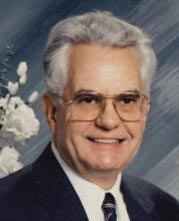

|

|
IN MEMORIAM
Donald K. Edwards
Professor of Chemical, Nuclear, and Thermal Engineering
UC Los Angeles
and
Professor of Mechanical Engineering
UC Irvine
1932 – 2009
Donald K. Edwards, Ph.D., passed away at the age of 76 on May 6, 2009. He was preceded in death by his first wife, Nathalie. He is survived by his second wife Louise (nee Buckus) and two children Victoria and Richard.
Edwards was born in Richmond, California. Early in his life, he was exposed to the practical aspects of engineering through his father, a mechanical engineer with Standard Oil Company, and through his uncle Eldred Edwards, a noted inventor and designer. This background facilitated his ability to achieve a unique balance between engineering science and technological relevance throughout his career. Indeed, he always enjoyed relating exploits of Uncle Eldred to illuminate many engineering issues!
He received a B.S. degree in engineering with highest honors in 1954 from UC Berkeley, as well as M.S. and Ph.D. degrees in 1956 and 1959, respectively. He then spent a year working at Lockheed Aircraft Company in Palo Alto, California—this experience marked the beginning of more than 40 years of active involvement with the California aerospace industry.
In September 1959, Edwards joined UCLA as an assistant professor in the College of Engineering. He was promoted to associate professor in 1963 and to full professor in 1968. He remained at UCLA through 1981, where he also served as chair of the Chemical, Nuclear and Thermal Department from 1975 to 1978. In 1976, he was the first recipient of the American Institute of Aeronautics and Astronautics (AIAA) Thermophysics Award; and in 1977, he received the Favorite Professor Award from the Engineering Student Society. Edwards was elected a Fellow of the American Society of Mechanical Engineers (ASME) in 1981, and Life Fellow in 1992.
In January 1982, Professor Edwards moved to the School of Engineering at UC Irvine. He served as chair of the Department of Mechanical Engineering (currently the Department of Mechanical and Aerospace Engineering) from 1984 to 1986, and as associate dean of engineering for graduate affairs from 1986 to 1989. In 1988, Edwards was elected a Fellow of the American Institute of Aeronautics and Astronautics (AIAA). He retired from the University of California in 1991, 40 years after first entering the UC system as an undergraduate student.
Throughout his career, he supervised 20 Ph.D. dissertations and 49 M.S. theses dealing with a wide range of heat transfer topics. Edwards was acknowledged as a world leader in thermal radiation research, both for measurements of surface and gas radiation properties, and the development of engineering calculation procedures for radiation transport. His monograph “Radiation Heat Transfer Notes” (Hemisphere, 1981) truly captures the essence of his unique contributions to the field. Technology areas impacted by his radiation research include spacecraft thermal control, radiant heating by rocket plumes, and radiation from soot in combustion gases. The scaling law methodology he developed with R. Matavosian remains a useful tool for simplifying engineering calculations of radiation in water vapor and carbon dioxide, and its use has had a major impact on combustion chamber design.
Another major area of Professor Edwards’ research was heat transfer by natural convection, with particular reference to enclosures. This work played an important role in his subsequent work on solar energy utilization, and in his monograph “Solar Collector Design,” which was published in 1977. In the late 1960s, he worked on various aspects of heatpipe technology, and guided development of gas-controlled heat pipes at TRW Systems, Inc. These heatpipes continue to be essential to heat rejection systems for many types of satellites. Over the years of his long, active career, Edwards contributed to many other areas of heat and mass transfer research, and invariably left his distinctive footprint of solid science coupled with solving the real engineering problem.
Professor Edwards co-authored the classic textbook Transfer Processes with Professors Vernon E. Denny and Anthony F. Mills. He also published more than 120 technical papers on his research findings and authored several book chapters.
Professor Edwards was regarded by his colleagues as the preeminent authority on heat transfer and thermal systems, and they often sought his advice when encountering major difficulties. On occasions he would not respond directly to the problem presented, and would begin to address a seemingly unrelated problem; but it soon became readily apparent that Professor Edwards had already identified the true root cause. The student or colleague would then leave the office much wiser and thankful for the lesson.
Professor Edwards was also sought by many graduate students, often not his own, and he was always generous with his time because he enjoyed nothing more than being presented with a new difficult problem. When appropriate, the student would receive a complete analysis a few days later in Edwards’ characteristic HB pencil handwriting on yellow pad paper. In academia, Professor Edwards will be remembered as a scholar, an engineer, and the quintessential teacher’s teacher.
Anthony Mills (UCLA)
Derek Dunn-Rankin (UCI)
Said Elghobashi (UCI)
Roger Rangel (UCI)
Bill Sirignano (UCI)